Fleurs du Mal Magazine


Or see the index
.jpg)
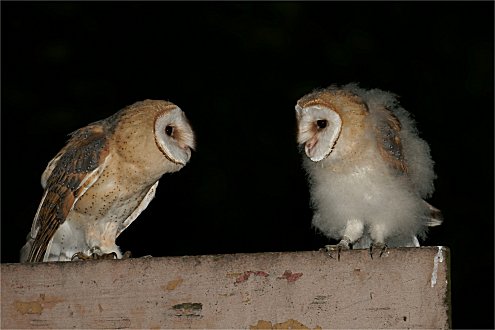
.jpg)
V i c t o r H u g o
L e h i b o u
Et je vis au-dessus de ma tête un point noir.
Et ce point noir semblait une mouche dans l’ombre.
Et rien n’avait de borne et rien n’avait de nombre ;
Et tout se confondait avec tout ; l’aquilon
Et la nuit ne faisaient qu’un même tourbillon.
Quelques formes sans nom, larves exténuées
Ou souffles noirs, passaient dans les sourdes nuées ;
Et tout le reste était immobile et voilé.
Alors, montant, montant, montant, je m’envolai
Vers ce point qui semblait reculer dans la brume,
Car c’est la loi de l’être en qui l’esprit s’allume
D’aller vers ce qui fuit et vers ce qui se tait.
Or ce que j’avais pris pour une mouche était
Un hibou, triste, froid, morne, et de sa prunelle
Il tombait moins de jour que de nuit de son aile. […]
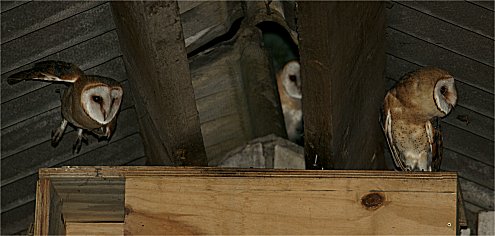
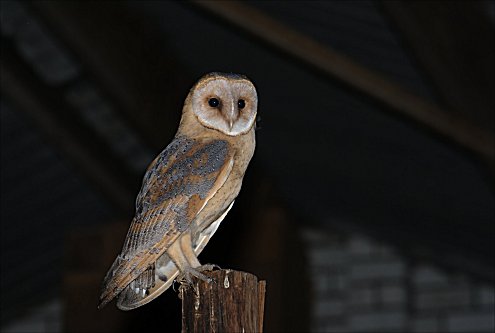
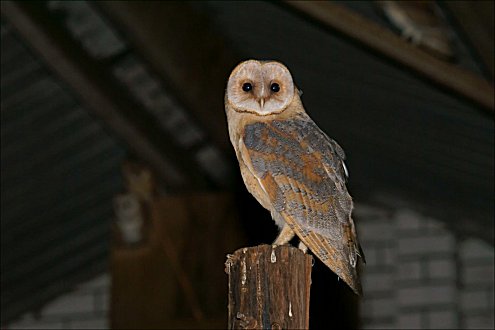
N a t u u r d a g b o e k D e c e m b e r 2 0 0 9
Photos: Hans Hermans ©
Poem by Victor Hugo (1802-1885)
kempis poetry magazine
More in: Department of Birds of Prey, Hans Hermans Photos, Hugo, Victor
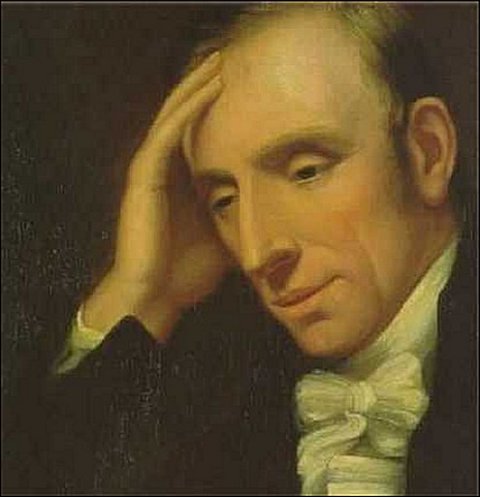
William Wordsworth
(1770-1850)
She was a Phantom of delight
She was a Phantom of delight
When first she gleam’d upon my sight;
A lovely Apparition, sent
To be a moment’s ornament;
Her eyes as stars of Twilight fair;
Like Twilight’s, too, her dusky hair;
But all things else about her drawn
From May-time and the chearful Dawn;
A dancing Shape, an Image gay,
To haunt, to startle, and way-lay.
I saw her upon nearer view,
A Spirit, yet a Woman too!
Her household motions light and free,
And steps of virgin liberty;
A countenance in which did meet
Sweet records, promises as sweet;
A Creature not too bright or good
For human nature’s daily food;
For transient sorrows, simple wiles,
Praise, blame, love, kisses, tears, and smiles.
And now I see with eye serene
The very pulse of the machine;
A Being breathing thoughtful breath;
A Traveller betwixt life and death;
The reason firm, the temperate will,
Endurance, foresight, strength and skill;
A perfect Woman; nobly plann’d,
To warn, to comfort, and command;
And yet a Spirit still, and bright
With something of an angel light.
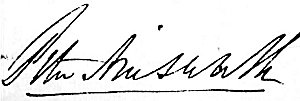
William Wordsworth poetry
kempis poetry magazine
More in: Wordsworth, William
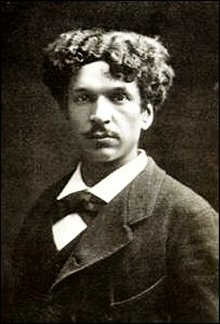
Charles Cros
(1842-1888)
R o m a n c e
A Philippe Burty
Le bleu matin
Fait pâlir les étoiles.
Dans l’air lointain
La brume a mis ses voiles.
C’est l’heure où vont,
Au bruit clair des cascades,
Danser en rond,
Sur le pré, les Dryades.
Matin moqueur,
Au dehors tout est rose.
Mais dans mon coeur
Règne l’ennui morose.
Car j’ai parfois
A son bras, à cette heure,
Couru ce bois.
Seule à présent j’y pleure.
Le jour parait,
La brume est déchirée,
Et la forêt
Se voit pourpre et dorée.
Mais, pour railler
La peine qui m’oppresse,
J’entends piailler
Les oiseaux en liesse.
.jpg)
Charles Cros poésie
kemp=mag – kempis poetry magazine
More in: Archive C-D, Cros, Charles

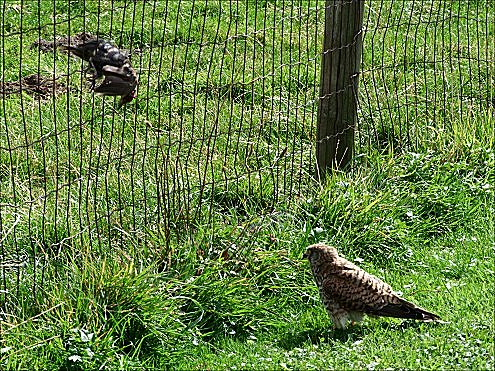
Poem: James Russell Lowell
The Falcon
I know a falcon swift and peerless
As e’er was cradled In the pine;
No bird had ever eye so fearless,
Or wing so strong as this of mine.
The winds not better love to pilot
A cloud with molten gold o’er run,
Than him, a little burning islet,
A star above the coming sun.
For with a lark’s heart he doth tower,
By a glorious upward instinct drawn;
No bee nestles deeper in the flower
Than he in the bursting rose of dawn.
No harmless dove, no bird that singeth,
Shudders to see him overhead;
The rush of his fierce swooping bringeth
To innocent hearts no thrill of dread.
Let fraud and wrong and baseness shiver,
For still between them and the sky
The falcon Truth hangs poised forever
And marks them with his vengeful eye.

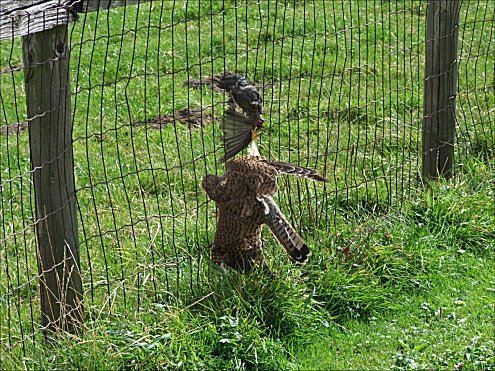
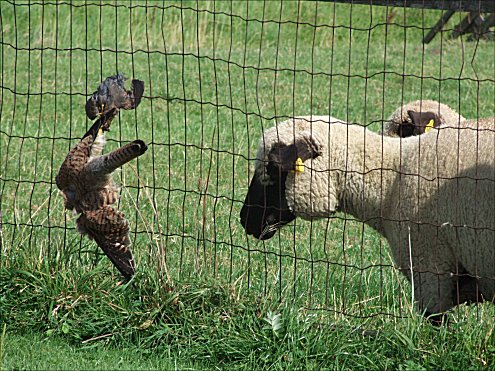

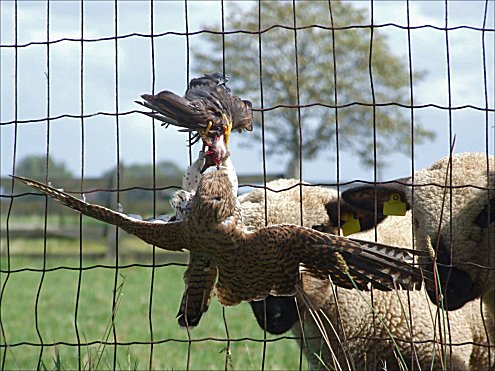
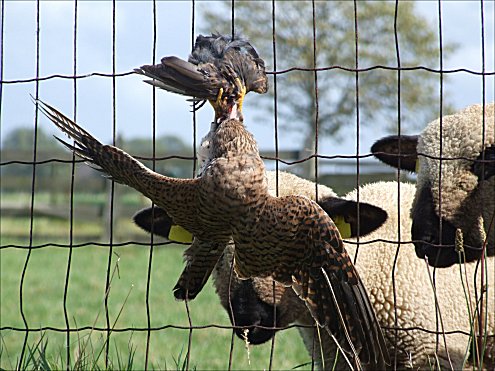

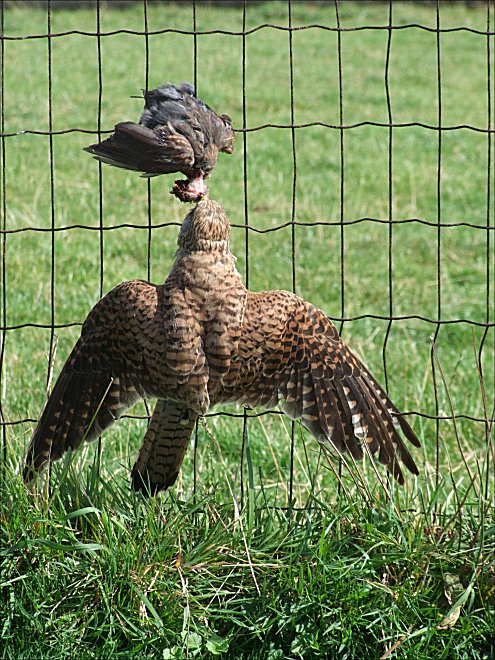
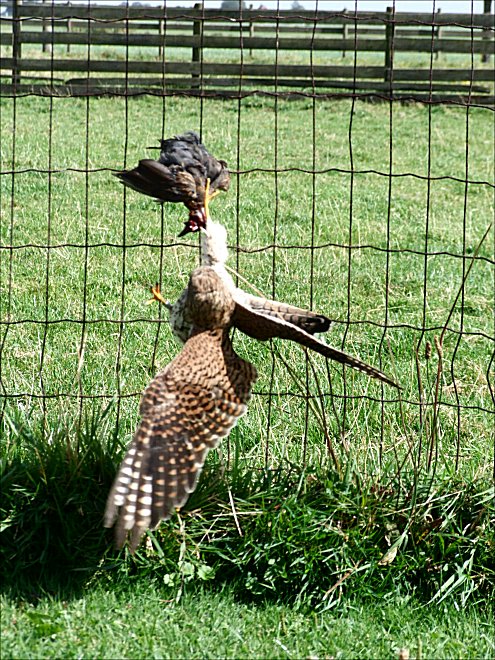
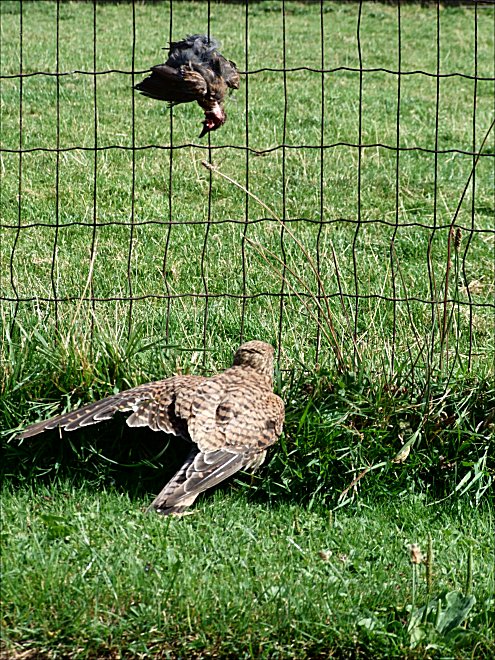

Photos: Co van Gorp
Poem: James Russell Lowell (1819 – 1891)
k e m p i s p o e t r y m a g a z i n e
More in: Archive K-L, Co van Gorp Photos, Department of Birds of Prey
.jpg)
W i l l i a m S h a k e s p e a r e
(1564-1616)
T H E S O N N E T S
15
When I consider every thing that grows
Holds in perfection but a little moment.
That this huge stage presenteth nought but shows
Whereon the stars in secret influence comment.
When I perceive that men as plants increase,
Cheered and checked even by the self-same sky:
Vaunt in their youthful sap, at height decrease,
And wear their brave state out of memory.
Then the conceit of this inconstant stay,
Sets you most rich in youth before my sight,
Where wasteful time debateth with decay
To change your day of youth to sullied night,
And all in war with Time for love of you,
As he takes from you, I engraft you new.
![]()
k e m p i s p o e t r y m a g a z i n e
More in: -Shakespeare Sonnets
.jpg)
P. A. d e G é n e s t e t
(1829 – 1861)
L e v e n s l i e d
Hoe min Ik dat fier en dat vrooljk gelaat
Met helderen blos op de wangen,
Dat oog, dat de reinheid der ziele verraadt,
Dat harte vol bloemen en zangen:
Hoe min ik u, heerlijk en hartelijk kind,
Die knielt voor uw God, en de lente bemint.
Maar ’k gun u dat bleek en dat ziekelijk schoon,
Die fletse, die mijmerende oogen,
Dat blosje zoo kwijnend, poëtisch van toon!
Dat hart door illuzie bedrogen
Ik gun u ’t bedorven, en dwepende kind,
Dat kwijnt in het voorjaar, en – ’t maantje bemint.
Hoe boeit mij de rijke, de manlijke luit,
Hoe wensch ik den zanger te kronen,
Die gloeit voor zijn God, voor zijn land, voor zijn bruid,
Die ’t leven in zinrijke tonen
Weerspieglend, al bloemen, vol kleurigen gloed,
Vol geuren des levens, ons strooit in ’t gemoed
Maar weg met dat ijslijk en kermend gezang,
Van zieklijke hersens en harten;
Ons maakt geen wanhopende Demon meer bang,
Ons walgt al de tooi van uw smarten,
O wereld-verachters, gij laat mij zoo koel;
O pronkende lijders …. waar is uw gevoel?
Hoe min ik die reine, die godlijke leer,
Die moedig leert leven en strijden,
De blijdschap ons heiligt als gaaf van den Heer,
En waarlijk kan troosten in ’t lijden!
Die spreekt: Dien uw God met een helder gezicht,
Heb zout in u-zelven, en wandel in ’t licht!
Maar, zieklijke dweper, ontplooi uw gelaat:
’k Heb schaduw genoeg in het leven!
Ach, spreek mij van God en zijn zegen geen kwaad,
En leer mij niet zuchten en beven!
Die pruilende lippen, dat hangende hoofd ….
Hem voegen ze ’t minst, die vertrouwt, die gelooft!
O Heer! laat nog lang een vertroostend gezicht
Mijn weg en mijn leven bestralen;
O leer mij dat lied, dat bezielt en verlicht,
Of troost in den boezem doet dalen
Schenk mij dat geloof en die kracht en dien moed,
Die strijdend – maar zingend, uw Hemel begroet!
1851
.jpg)
P.A. de Génestet gedichten
k e m p i s p o e t r y m a g a z i n e
More in: Génestet, P.A. de

G e o r g e E l i o t
(Mary Ann Evans, 1819 – 1880)
Brother and Sister
I.
I cannot choose but think upon the time
When our two lives grew like two buds that kiss
At lightest thrill from the bee’s swinging chime,
Because the one so near the other is.
He was the elder and a little man
Of forty inches, bound to show no dread,
And I the girl that puppy-like now ran,
Now lagged behind my brother’s larger tread.
I held him wise, and when he talked to me
Of snakes and birds, and which God loved the best,
I thought his knowledge marked the boundary
Where men grew blind, though angels knew the rest.
If he said "Hush!" I tried to hold my breath;
Wherever he said "Come!" I stepped in faith.
II.
Long years have left their writing on my brow,
But yet the freshness and the dew-fed beam
Of those young mornings are about me now,
When we two wandered toward the far-off stream
With rod and line. Our basket held a store
Baked for us only, and I thought with joy
That I should have my share, though he had more,
Because he was the elder and a boy.
The firmaments of daisies since to me
Have had those mornings in their opening eyes,
The bunchèd cowslip’s pale transparency
Carries that sunshine of sweet memories,
And wild-rose branches take their finest scent
From those blest hours of infantine content.
III.
Our mother bade us keep the trodden ways,
Stroked down my tippet, set my brother’s frill,
Then with the benediction of her gaze
Clung to us lessening, and pursued us still
Across the homestead to the rookery elms,
Whose tall old trunks had each a grassy mound,
So rich for us, we counted them as realms
With varied products: here were earth-nuts found,
And here the Lady-fingers in deep shade;
Here sloping toward the Moat the rushes grew,
The large to split for pith, the small to braid;
While over all the dark rooks cawing flew,
And made a happy strange solemnity,
A deep-toned chant from life unknown to me.
IV.
Our meadow-path had memorable spots:
One where it bridged a tiny rivulet,
Deep hid by tangled blue Forget-me-nots;
And all along the waving grasses met
My little palm, or nodded to my cheek,
When flowers with upturned faces gazing drew
My wonder downward, seeming all to speak
With eyes of souls that dumbly heard and knew.
Then came the copse, where wild things rushed unseen,
And black-scathed grass betrayed the past abode
Of mystic gypsies, who still lurked between
Me and each hidden distance of the road.
A gypsy once had startled me at play,
Blotting with her dark smile my sunny day.
V.
Thus rambling we were schooled in deepest lore,
And learned the meanings that give words a soul,
The fear, the love, the primal passionate store,
Whose shaping impulses make manhood whole.
Those hours were seed to all my after good;
My infant gladness, through eye, ear, and touch,
Took easily as warmth a various food
To nourish the sweet skill of loving much.
For who in age shall roam the earth and find
Reasons for loving that will strike out love
With sudden rod from the hard year-pressed mind?
Were reasons sown as thick as stars above,
‘Tis love must see them, as the eye sees light:
Day is but Number to the darkened sight.
VI.
Our brown canal was endless to my thought;
And on its banks I sat in dreamy peace,
Unknowing how the good I loved was wrought,
Untroubled by the fear that it would cease.
Slowly the barges floated into view
Rounding a grassy hill to me sublime
With some Unknown beyond it, whither flew
The parting cuckoo toward a fresh spring time.
The wide-arched bridge, the scented elder-flowers,
The wondrous watery rings that died too soon,
The echoes of the quarry, the still hours
With white robe sweeping-on the shadeless noon,
Were but my growing self, are part of me,
My present Past, my root of piety.
VII.
Those long days measured by my little feet
Had chronicles which yield me many a text;
Where irony still finds an image meet
Of full-grown judgments in this world perplext.
One day my brother left me in high charge,
To mind the rod, while he went seeking bait,
And bade me, when I saw a nearing barge,
Snatch out the line lest he should come too late.
Proud of the task, I watched with all my might
For one whole minute, till my eyes grew wide,
Till sky and earth took on a strange new light
And seemed a dream-world floating on some tide —
A fair pavilioned boat for me alone
Bearing me onward through the vast unknown.
VIII.
But sudden came the barge’s pitch-black prow,
Nearer and angrier came my brother’s cry,
And all my soul was quivering fear, when lo!
Upon the imperilled line, suspended high,
A silver perch! My guilt that won the prey,
Now turned to merit, had a guerdon rich
Of songs and praises, and made merry play,
Until my triumph reached its highest pitch
When all at home were told the wondrous feat,
And how the little sister had fished well.
In secret, though my fortune tasted sweet,
I wondered why this happiness befell.
"The little lass had luck," the gardener said:
And so I learned, luck was with glory wed.
IX.
We had the self-same world enlarged for each
By loving difference of girl and boy:
The fruit that hung on high beyond my reach
He plucked for me, and oft he must employ
A measuring glance to guide my tiny shoe
Where lay firm stepping-stones, or call to mind
"This thing I like my sister may not do,
For she is little, and I must be kind."
Thus boyish Will the nobler mastery learned
Where inward vision over impulse reigns,
Widening its life with separate life discerned,
A Like unlike, a Self that self restrains.
His years with others must the sweeter be
For those brief days he spent in loving me.
X.
His sorrow was my sorrow, and his joy
Sent little leaps and laughs through all my frame;
My doll seemed lifeless and no girlish toy
Had any reason when my brother came.
I knelt with him at marbles, marked his fling
Cut the ringed stem and make the apple drop,
Or watched him winding close the spiral string
That looped the orbits of the humming top.
Grasped by such fellowship my vagrant thought
Ceased with dream-fruit dream-wishes to fulfil;
My aëry-picturing fantasy was taught
Subjection to the harder, truer skill
That seeks with deeds to grave a thought-tracked line,
And by "What is," "What will be" to define.
XI.
School parted us; we never found again
That childish world where our two spirits mingled
Like scents from varying roses that remain
One sweetness, nor can evermore be singled.
Yet the twin habit of that early time
Lingered for long about the heart and tongue:
We had been natives of one happy clime
And its dear accent to our utterance clung.
Till the dire years whose awful name is Change
Had grasped our souls still yearning in divorce,
And pitiless shaped them in two forms that range
Two elements which sever their life’s course.
But were another childhood-world my share,
I would be born a little sister there.

George Eliot poetry
kempis poetry magazine
More in: Eliot, George
.jpg)
M u l t a t u l i
(Eduard Douwes Dekker, 1820-1887)
Roverslied
Met mijn zwaard,
Op m’n paard,
En mijn helm op het hoofd,
Er op in! En de vijand de schedel gekloofd,
En vooruit!
Op de weg,
Langs de heg,
Met een houw en een stoot
De dragonders verjaagd, en de markgraaf gedood,
Om de buit!
En die buit
Is mijn bruid,
Mij gekocht met m’n staal,
En ik voer, als een veer, met mij mee haar in ‘t zaâl,
Naar de grot!
Als de wind
Zo gezwind,
Jaag ik voort met mijn vracht,
En ik sla op haar schreien en kermen geen acht,
Wat genot!
En dan weer
Op-en-neer,
Rechts en links door het land,
Hier een villa verwoest, daar een klooster verbrand,
Tot vermaak!
En dan voort
Weer gespoord
Naar een nieuw avontuur,
En mijn reisweg getekend met bloed en met vuur,
Om de wraak!
Want de wraak
Is de taak
Van de koning van ‘t woud…
Die, alleen tegen allen, zijn schepter behoudt…
En banier!
Op, hoezee…
Wie gaat mee?
Nu geen schepsel verschoond,
Nu de mannen gehangen, de vrouwen gehoond,
Voor plezier!
.jpg)
Multatuli gedichten
kempis poetry magazine
.jpg)
D i e A b w e i s u n g
Franz Kafka (1883-1924)
Wenn ich einem schönen Mädchen begegne und sie bitte: »Sei so gut, komm mit mir« und sie stumm vorübergeht, so meint sie damit: »Du bist kein Herzog mit fliegendem Namen, kein breiter Amerikaner mit indianischem Wuchs, mit wagrecht ruhenden Augen, mit einer von der Luft der Rasenplätze und der sie durchströmenden Flüsse massierten Haut, Du hast keine Reisen gemacht zu den großen Seen und auf ihnen, die ich weiß nicht wo zu finden sind. Also ich bitte, warum soll ich, ein schönes Mädchen, mit Dir gehn?«
»Du vergißt, Dich trägt kein Automobil in langen Stößen schaukelnd durch die Gasse; ich sehe nicht die in ihre Kleider gepreßten Herren Deines Gefolges, die Segensprüche für Dich murmelnd in genauem Halbkreis hinter Dir gehn; Deine Brüste sind im Mieder gut geordnet, aber Deine Schenkel und Hüften entschädigen sich für jene Enthaltsamkeit; Du trägst ein Taffetkleid mit plissierten Falten, wie es im vorigen Herbste uns durchaus allen Freude machte, und doch lächelst Du — diese Lebensgefahr auf dem Leibe — bisweilen.«
»Ja, wir haben beide recht und, um uns dessen nicht unwiderleglich bewußt zu werden, wollen wir, nicht wahr, lieber jeder allein nach Hause gehn.«
.jpg)
Franz Kafka: Betrachtung 1913 – Für M.B.
fleursdumal.nl magazine
More in: Franz Kafka, Kafka, Franz, Kafka, Franz
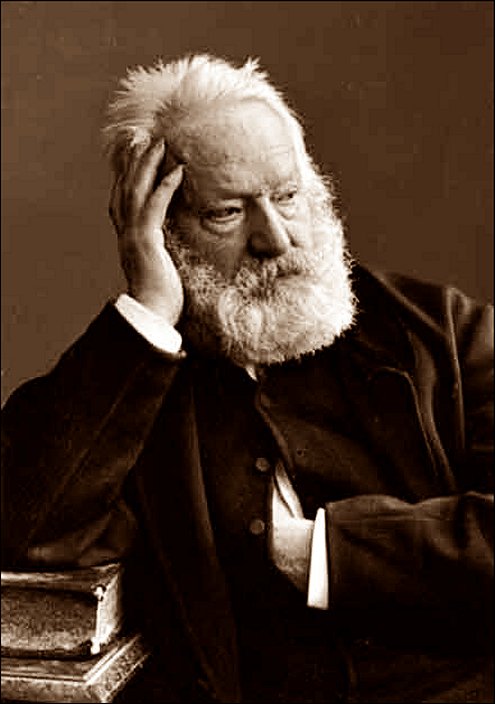
V i c t o r H u g o
(1802-1885)
L’art et le peuple
I
L’art, c’est la gloire et la joie.
Dans la tempête il flamboie ;
Il éclaire le ciel bleu.
L’art, splendeur universelle,
Au front du peuple étincelle,
Comme l’astre au front de Dieu.
L’art est un champ magnifique
Qui plaît au coeur pacifique,
Que la cité dit aux bois,
Que l’homme dit à la femme,
Que toutes les voix de l’âme
Chantent en choeur à la fois !
L’art, c’est la pensée humaine
Qui va brisant toute chaîne !
L’art, c’est le doux conquérant !
A lui le Rhin et le Tibre !
Peuple esclave, il te fait libre ;
Peuple libre, il te fait grand !
II
Ô bonne France invincible,
Chante ta chanson paisible !
Chante, et regarde le ciel !
Ta voix joyeuse et profonde
Est l’espérance du monde,
Ô grand peuple fraternel !
Bon peuple, chante à l’aurore,
Quand le soir vient, chante encore !
Le travail fait la gaîté.
Ris du vieux siècle qui passe !
Chante l’amour à voix basse,
Et tout haut la liberté !
Chante la sainte Italie,
La Pologne ensevelie,
Naples qu’un sang pur rougit,
La Hongrie agonisante …
Ô tyrans ! le peuple chante
Comme le lion rugit !
.jpg)
Victor Hugo poetry
fleursdumal.nl magazine
More in: Archive G-H, Archive G-H, Hugo, Victor, Victor Hugo

J a n e A u s t e n
(1775 – 1817)
Mock Panegyric on a Young Friend
In measured verse I’ll now rehearse
The charms of lovely Anna:
And, first, her mind is unconfined
Like any vast savannah.
Ontario’s lake may fitly speak
Her fancy’s ample bound:
Its circuit may, on strict survey
Five hundred miles be found.
Her wit descends on foes and friends
Like famed Niagara’s fall;
And travellers gaze in wild amaze,
And listen, one and all.
Her judgment sound, thick, black, profound,
Like transatlantic groves,
Dispenses aid, and friendly shade
To all that in it roves.
If thus her mind to be defined
America exhausts,
And all that’s grand in that great land
In similes it costs —
Oh how can I her person try
To image and portray?
How paint the face, the form how trace,
In which those virtues lay?
Another world must be unfurled,
Another language known,
Ere tongue or sound can publish round
Her charms of flesh and bone.

kempis poetry magazine
More in: Austen, Jane, Austen, Jane
.jpg)
W i l l e m B i l d e r d i j k
(1756-1831)
S t e r v e n s z u c h t
’k Heb dan eens een uurtjen rust.
ô Wat sombre hartelust
Maakt zich meester van mijn zinnen!
’k Sta hier op den rand van ’t graf:
» Morgen werpt de dag my af!
» Morgen, ja, de haven binnen ! »
Heeft mijn ziel dit wel verstaan?
Zeî my dit een ijdel waan;
Of een voorgevoel van sneven?
Lieve God, ô blijf my by,
Wat gy raadsloegt over my,
Zy aan u-alleen verbleven!
Immer voert me een zoete hoop
Naar den eindpaal van mijn’ loop :
Immer toef ik op dat morgen.
Maar dat morgen, zoo verlangd,
Daar geheel mijn hart aan hangt,
Is in Uwen raad verborgen.
Waarom, waarom met geduld
Mijn bestemming niet vervuld?
Waarom dus naar ’t lot gegrabbeld ? —
Zucht naar ’t uiteind van zijn smart
Tergt en tokkelt aan mijn hart,
Als de vlam aan ’t haardhout knabbelt.
Ach, mijn God! ik heb geleefd
’k Heb door leed en nood gestreefd,
Moedig, vurig, onverschrokken.
Maar waar vond ik, ô God,
Ooit een’ oogwenk zielsgenot
Dat mijn’ boezem mocht verlokken
Leven ? ô wat valt dat bang.
Zelfs by weeldes tooverzang!
Zelfs in wellusts troetlende armen!
Leven is geen leven, neen.
’t Is een schaduw hier beneên;
’t Is, in ’t hart versmoorend kermen.
Zalig, wien zijn laatste dag
’t Hoofd ten doodslaap buigen mag!
Zalig, ’t rusten van zijn werken!
Lieflijk kleppert aan en af
’t Avondwindtjen over ’t graf,
En verkoelt het met zijn vlerken.
’t Morgenroosjen, moê en mat,
Laat haar saamgekrompen blad
Op den dorren wortel vallen.
’t Veldkruid, van den middag flaauw,
Hijgt naar frisschen avonddauw;
’t Loeiend vee naar luwe stallen.
Ik, mijn God, verlang als zy.
Plantjen in dees woesteny,
Schaars verkwikt door malschen regen,
Buig ik op mijn’ dorren steel :
Runddier in het ploeggareel,
Schrei ik d’avondschemer tegen.
Runddier (nnen!) dat niet meer ploegt,
Maar op d’akker afgezwoegd,
Knikkend neêrzeeg in de voren,
Brandend naar den dronk versmacht,
Die hem in de toekomst wacht :
En, wiens loeien Gy wilt hooren!
.jpg)
Willem Bilderdijk gedichten
k e m p i s p o e t r y m a g a z i n e
More in: Bilderdijk, Willem
Thank you for reading Fleurs du Mal - magazine for art & literature